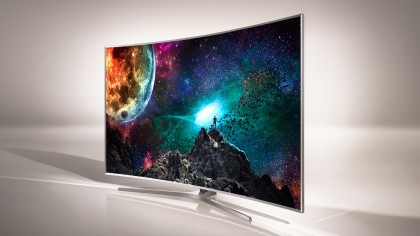What went wrong with 3D?
Sky has cancelled its 3D channel, so what's next for the format?
Sign up for breaking news, reviews, opinion, top tech deals, and more.
You are now subscribed
Your newsletter sign-up was successful
Is 3D totally dead?
Here's where things get both interesting and confusing. No, 3D is not dead, it's merely resting.
One of the things that will make 3D a little more attractive is, weirdly, VR. Because VR produces images for both your eyes separately, it's automatically able to do 3D well and with great ease. What that means is that games will be 3D, and you can watch movies in the format too, should you chose.
For gaming, this is going to be absolutely huge.

VR games on the Gear VR from Samsung are fantastic and demos for Oculus Rift and HTC Vive make it look utterly amazing too.
And let's be honest, we do all see in 3D so it's natural to want to experience games and other entertainment in the format.
VR gives a much more natural environment for that though. And while some of the same problems exist - like having to wear something over your face - it's a much better experience than a 3D TV could ever give. Plus, head tracking has the potential to give you an even more immersive 3D experience by actually producing real 3D rather than something that was just a series of rather obvious layers.
Will we see more 3D movies?
If you look back at the history of cinema you'll see that there have been 3D movies for almost as long as there have been movies.
Sign up for breaking news, reviews, opinion, top tech deals, and more.
So yes, it's almost guaranteed cinemas will carry on showing 3D movies. They've bought the equipment now, they can charge a little more and James Cameron isn't, sadly, doing to stop making Avatar movies any time soon.
And there are still people who steadfastly wont see films that aren't shown in 3D either.
And these days a lot of movies aren't shot with special 3D camera rigs, but the depth information is simply added digitally in post-production. This works well for films that are heavy on CGI, and as you might expect, CGI animation can be made into 3D even more simply.
So the 3D movies will continue to be made. Cinemas can show it, and you can watch it at home, so there may still be a reasonably small market for it for years to come.
But 4K will be the killer blow
It's reasonable to argue that 3D was an attempt to make TVs profitable again, but now the novelty and desire has worn off TV manufacturers are left with the same problem again - getting more than £1000 out of customers, rather than £350 for a bog-standard 1080p TV.
And 4K has learnt from all the mistakes that 3D made.
People seem to care about resolution, they remember the jump from SD to HD and think that HD to 4K will be the same. In truth, that's not the case but 4K does still offer an improvement.
There will be a new Blu-ray format this year, but it's also quite likely that Sky will invest the money saved on 3D into producing 4K sports at some point this year. Along with that Netflix and Amazon both stream 4K and so does YouTube, so there are more places to watch UHD content now - something that really choked 3D as it was mostly a disc-only format, with the odd TV channel or event.

Other technologies like HDR, which allows a TV to display more detail in light and dark areas of the picture, rather than have them wash out, or disappear into the gloom are already impressing this year, like Samsung's gorgeous UE65JS9500. We'll also get panel technologies like OLED and quantum dot TVs with much bolder colour, which will be a very visual improvement for most people.
So TV is about to have another sales boost, but 3D is long-forgotten.
At least until the next time it rolls around…